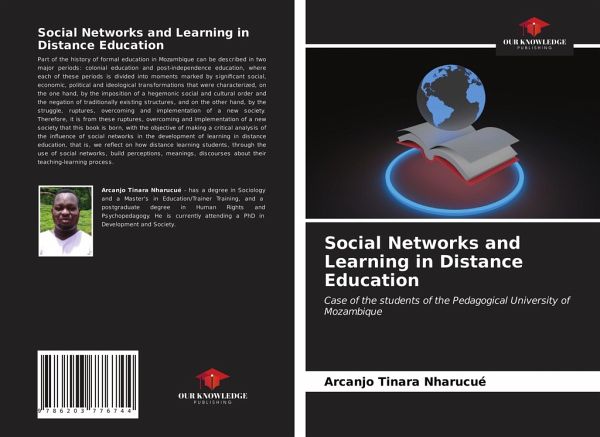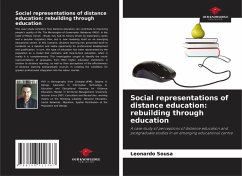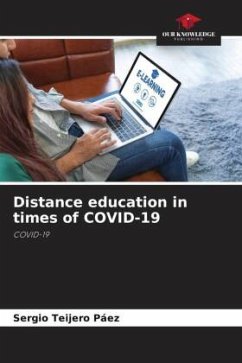
Social Networks and Learning in Distance Education
Case of the students of the Pedagogical University of Mozambique
Versandkostenfrei!
Versandfertig in 6-10 Tagen
27,99 €
inkl. MwSt.

PAYBACK Punkte
14 °P sammeln!
Part of the history of formal education in Mozambique can be described in two major periods: colonial education and post-independence education, where each of these periods is divided into moments marked by significant social, economic, political and ideological transformations that were characterized, on the one hand, by the imposition of a hegemonic social and cultural order and the negation of traditionally existing structures, and on the other hand, by the struggle, ruptures, overcoming and implementation of a new society. Therefore, it is from these ruptures, overcoming and implementation...
Part of the history of formal education in Mozambique can be described in two major periods: colonial education and post-independence education, where each of these periods is divided into moments marked by significant social, economic, political and ideological transformations that were characterized, on the one hand, by the imposition of a hegemonic social and cultural order and the negation of traditionally existing structures, and on the other hand, by the struggle, ruptures, overcoming and implementation of a new society. Therefore, it is from these ruptures, overcoming and implementation of a new society that this book is born, with the objective of making a critical analysis of the influence of social networks in the development of learning in distance education, that is, we reflect on how distance learning students, through the use of social networks, build perceptions, meanings, discourses about their teaching-learning process.












